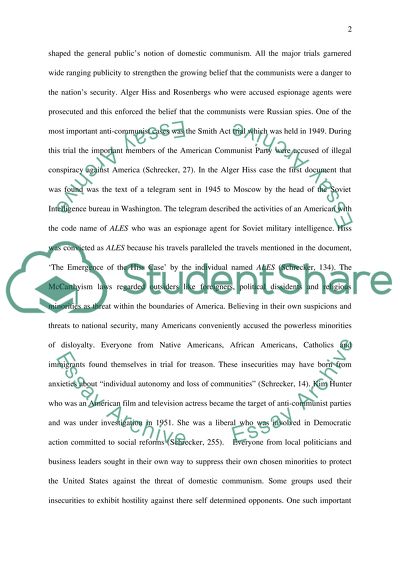Cite this document
(The Age of McCarthyism by Ellen Schecker Book Report/Review - 2, n.d.)
The Age of McCarthyism by Ellen Schecker Book Report/Review - 2. Retrieved from https://studentshare.org/literature/1594011-book-report
The Age of McCarthyism by Ellen Schecker Book Report/Review - 2. Retrieved from https://studentshare.org/literature/1594011-book-report
(The Age of McCarthyism by Ellen Schecker Book Report/Review - 2)
The Age of McCarthyism by Ellen Schecker Book Report/Review - 2. https://studentshare.org/literature/1594011-book-report.
The Age of McCarthyism by Ellen Schecker Book Report/Review - 2. https://studentshare.org/literature/1594011-book-report.
“The Age of McCarthyism by Ellen Schecker Book Report/Review - 2”, n.d. https://studentshare.org/literature/1594011-book-report.


